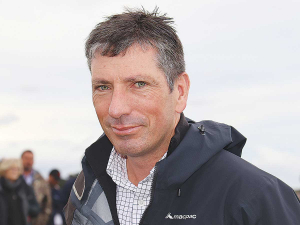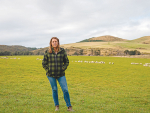Beef + Lamb NZ (B+LNZ) says it is deeply unhappy with what it describes as the Government's 'flawed' emissions pricing proposal.
"Like all sheep and beef farmers, we're gutted," says B+LNZ chief executive Sam McIvor. "The Government made fundamental changes to the He Waka Eke Noa recommended option. We have made it clear to the Government that B+LNZ will not accept a proposal which will disproportionately impact the sheep and beef sector."
McIvor adds that it is frustrating that after two years of hard work with other sector partners through the He Waka Eke Noa process, the Government rejected the fundamental aspects of the partnership's option.
"At recent meetings with farmers, we have been urging them to direct their justifiable anger at the Government and make submission," he told Rural News.
"B+LNZ has spent a great deal of time looking at our strategy around emissions pricing. While we would prefer our emissions were not priced, the Government has already passed a law to do this from 2025, including entry for our sector into the Emissions Trading Scheme (ETS)."
McIvor explains that the goal from the outset has been keeping agriculture out of the ETS, which would be crippling for the sheep and beef sector and coming up with a credible alternative.
He also rejects criticism of B+LNZ pushing back against the Government and refusing to continue participating in the HWEN process.
“We don’t believe that saying ‘no’ at this point will serve the sector. The Government has proposed not to put agriculture into the ETS but has been absolutely resolute that emissions charges will start in 2025.”
He points to intensive winter grazing as a good example of the ‘disastrous’ results of the Government not listening to the sector over policy.
“We disagreed fundamentally with the Government on this approach, but they just steamrolled ahead. In these circumstances, we have to do all we can to get the best possible outcome for farmers.”
He concedes that B+LNZ understands the concern among farmers over the emissions policy and says it is fighting hard to ensure that the impact on the red meat sector the Government has modelled doesn’t happen.
“The fight is taking place not just in consultation on what a pricing system might look like, but also in related policy areas such as addressing the unfair methane targets and reforming the ETS so that it doesn’t drive unfettered afforestation,” McIvor told Rural News.
“The Government’s emissions pricing proposal is unacceptable in its current form. It will increase global emissions and mean Kiwis will have to spend more on food.”
McIvor says if farmers have to pay for their emissions, they should receive recognition for the genuine sequestration happening on their farms.
“We want to work with the Government to create sensible policy and programmes to help address climate change. We are proposing sensible changes to the Government that are good for the world and good for New Zealand farming.”
McIvor says NZ has a global competitive advantage in food production, but the Government’s emissions pricing policy will structurally damage New Zealand, make ghost towns of some rural communities and harm farming families.
“Reducing sheep and beef farming by as much as 20% is a losing strategy for the world’s most efficient farmers and New Zealand.”



















